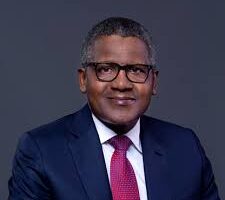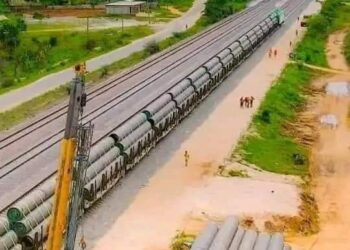The revelation by the founder of Dangote Group, Aliko Dangote, that local and international criminal organisations, which he described as “mafia”, made repeated attempts to sabotage his $19 billion refinery project located in Lagos, is mind boggling.
Speaking at the Afreximbank Annual Meetings last week, Dangote likened the oil cartels to a mafia stronger than the drug mafia hell-bent on maintaining their grip on the industry.
“Well, I knew that there would be a fight. But I didn’t know that the mafia in oil, they are stronger than the mafia in drugs. I can tell you that. Yes, it’s a fact,” he said.
Dangote, who described himself as a fighter, said they “tried all sorts” to stop him. But I’m a person that has been fighting all my life. You know, so I think it’s part of my life to fight,” he said.
He added, “As a matter of fact during the COVID period, some of the international banks really were looking forward to making sure that they push us into default of our loans so that the project will just be dead. And that didn’t happen with the help of banks like Afreximbank.”
Dangote also revealed that he has paid off $2.4 billion of the $5.5 billion borrowed for the Lagos-based refinery. He unveiled plans to diversify into the steel sector, aiming to utilise solely Nigerian-produced steel and achieve self-sufficiency.
The Dangote Refinery, which was commissioned on May 10, 2023, by the then President Muhammadu Buhari, shortly before he exited office having served his eight-year of two-term constitutional limit, took nearly seven years to build. It is the world’s largest single-train refinery, meaning the plant has one integrated distillery system which can produce a variety of products and petrochemicals, instead of having different units for each type of products.
The Dangote refinery, which is Africa’s biggest oil refinery, is expected to alleviate chronic fuel shortages. Although, Nigeria is a major oil producer but most of this is sent abroad while it has to import the refined fuel used in vehicles and elsewhere.
As a result the country often faces chronic fuel shortages. This is the problem that the $19bn (£15.2bn) refinery, owned by Africa’s richest man, Aliko Dangote, is intended to tackle.
“This is a game-changer for the Nigerian people,” said the then President Buhari while commissioning the facility.
The plant, which became partially operational early this year, has the capacity to produce about 650,000 barrels of petroleum products a day – more than enough to supply the country’s needs. It also includes a power station, deep seaport and fertiliser plant.
Nigeria’s existing refineries have been completely shut down for over three years owing to oil theft, pipeline vandalism and structural neglect.
At its launch, Dangote outlined his hopes for the refinery: “Our first goal is to ramp up production of the various products to ensure that within this year, we are able to fully satisfy the nation’s demand for quality products.”
Interestingly, the Dangote Petroleum Refinery has since commenced production of diesel and aviation fuel but rescheduled the launch of its petrol sales to July 10-15 pushing back its initial June target due to “minor” logistical issues.
An elated President of Dangote Group, Aliko Dangote, thanked President Bola Ahmed Tinubu for his support, encouragement, and thoughtful advice towards the actualisation of this project.
Dangote also thanked the Nigerian National Petroleum Company Limited (NNPCL), the Nigerian Upstream Petroleum Regulatory Commission (NUPRC), Nigerian Midstream and Downstream Petroleum Regulatory Authority (NMDPRA) and Nigerians for their support and belief in the historic project.
Blueprint commends the resilience, doggedness, and defiance of Dangote in bringing to fruition the petrochemical refinery that is not only the biggest in Africa but also the largest single-train refinery across the globe.
This is no mean feat, deserving of kudos, encouragement and support of all the stakeholders. It’ is our hope and prayer that this patriotic gesture will payoff in resolving Nigeria’s energy conundrum, especially in the oil and gas sector.




